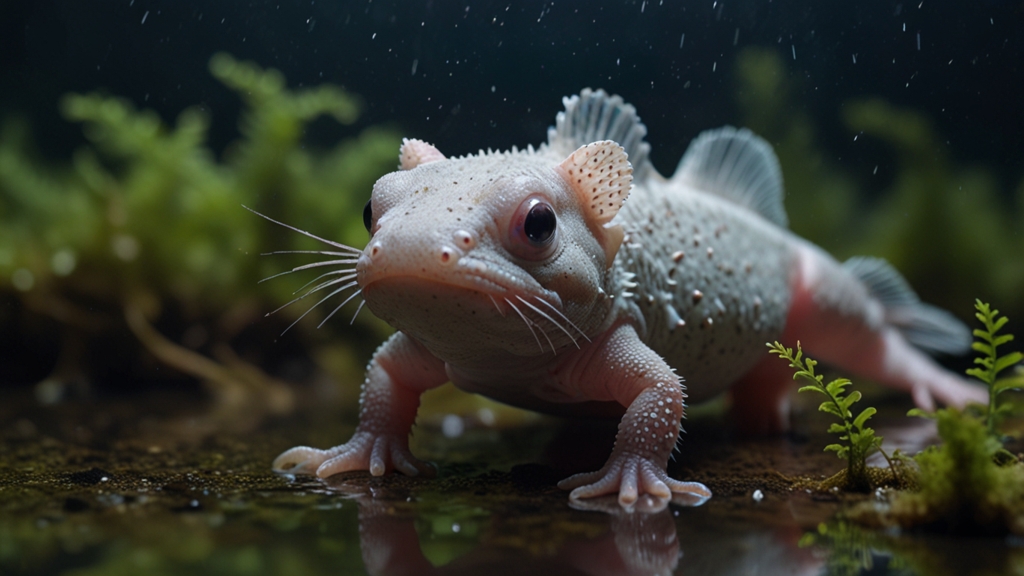Fascinating Facts About Animal Memory You Need to Know
When we think about memory, often the first thing that comes to mind is how we, as humans, recall experiences, knowledge, and emotions. However, the animal kingdom offers a striking array of memory capabilities, some of which are surprisingly advanced. Here, we delve into some of the most fascinating facts about animal memory that highlight the cognitive prowess of our non-human counterparts.
Elephants Never Forget
There is a popular saying that "an elephant never forgets," and it turns out this adage isn't far from the truth. Elephants have exceptional memories that are crucial for their survival. They can remember the locations of water sources over vast distances, recollect the social bonds they form within their herds, and even recognize individual humans several years after first meeting them. Their extensive memory allows them to navigate their often harsh environments effectively.
"Elephants can remember past relationships and can recognize individuals they haven't seen for years. This ability helps them maintain complex social structures, which are crucial for the survival of the species." - Jane Goodall
Dolphins' Long-Term Memory
Dolphins are renowned for their intelligence, and part of this is due to their impressive memory skills. Studies have shown that dolphins can remember the signature whistles of their companions for more than 20 years. These signature whistles function much like human names, allowing dolphins to keep track of and communicate with each other even after long periods of separation.
"The retention of social memories in dolphins mirrors the deep social bonds seen in human societies. This remarkable ability is just one example of the sophisticated intelligence of these marine mammals." - National Marine Mammal Foundation
Bird Brains: The Memory of Corvids
Members of the corvid family, which includes crows, ravens, and magpies, demonstrate astonishing memory capabilities. These birds are known to create and use tools, solving complex problems with ease. One of the most striking examples of their memory is their ability to recall the locations of thousands of caches of food they have hidden over months. This ability is not only about remembering the physical location but also ensuring they retrieve the food before it spoils or another animal finds it.
Moreover, corvids can recognize human faces and remember them for years. They can distinguish between friendly and threatening humans, adapting their behavior based on these memories.
Honeybees and Navigation
Despite their small size and brain, honeybees have remarkable navigational skills—a testament to their memory capabilities. Honeybees use a combination of visual landmarks, the position of the sun, and even the Earth's magnetic field to navigate and communicate the locations of flowers to fellow hive members through their famous "waggle dance." This complex behavior demonstrates their capacity to remember detailed environmental information over multiple foraging trips.
Dogs and Their Emotional Memory
Many dog owners will attest to their pets' ability to remember and recognize people, places, and objects. Dogs not only have a good memory for training commands and routines but also a strong emotional memory. They can recall experiences associated with emotions, whether positive or negative. This emotional memory is evident when dogs show excitement upon seeing a favorite toy or person, even if much time has elapsed since the last encounter.
"Dogs have an incredible ability to remember smells and associate them with experiences. This olfactory memory is a key part of how they navigate their world and build strong bonds with humans." - Stanley Coren
Octopuses: The Invertebrate Intellect
Octopuses are among the most intelligent invertebrates, possessing both short-term and long-term memories. They can learn through observation and have been seen solving complex puzzles to obtain food. An octopus can remember how to open a jar and will use this knowledge to access food similarly in the future. Their ability to recall and apply learned behaviors indicates a sophisticated and flexible memory system.
Conclusion
Animal memory is as diverse and complex as the animal kingdom itself. From dolphins remembering each other's calls for decades to bees navigating with remarkable precision, these abilities underline the profound cognitive capacities that exist in nature. Understanding these various types of memory not only enriches our knowledge of the animal world but also offers unique insights into the evolution of intelligence and memory across species.









